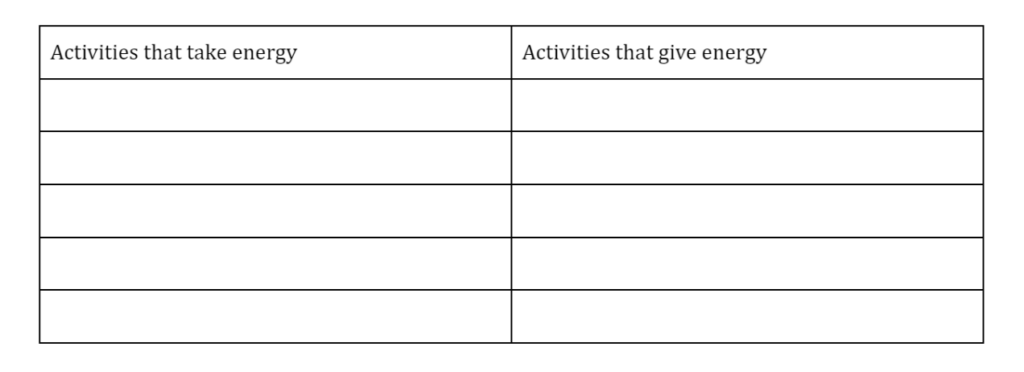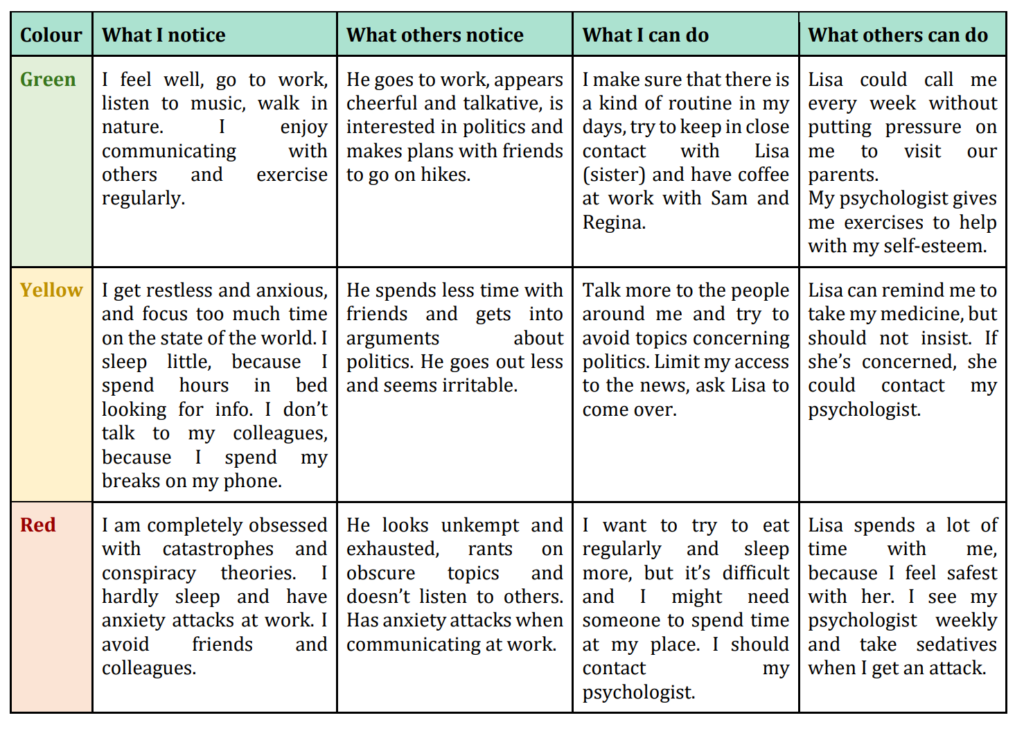Introduction
In this chapter we will discuss the importance of taking good care of the most important person in your life – you! After offering some insight into what self-care can mean and why it is so essential to focus on your wellbeing, we give you some tips on evaluating your needs and finding ways to communicate those to others.
As a peer supporter, it’s very easy to get caught up in the worries and problems of the ones you’re helping and those people are likely not the only ones in your life that you dedicate your time to – you also have family, friends, acquaintances and colleagues that need advice, being heard and at times, emotional support. Supporting others is a kind of never ending process that is easy to get lost in, but giving too much can be seriously detrimental to your health. One of the most wonderful things about human beings is our need to be a hero, to help and be there for the people that have lost their way.
At the same time, it is important that you do not forget that you, too, are human, and just like the people that you offer your time and support to, you deserve and are inherently worthy of rest, help and love.
It may be difficult to find that moment for yourself when there is someone that needs your assistance, but giving too much of yourself can lead to burnout and compassion fatigue. This creates a situation where you may need to take a longer break from acting as a peer supporter, leaving the supported person without someone they trust. Limiting yourself and keeping an eye on your own wellness enables you to be there for the longer term without causing emotional harm to yourself or others. When it comes to peer support, slow and steady is the way to go!
8.1 Assessing your self-care needs
What constitutes self-care can be very different for people, as we all have our own hobbies, preferences and previous experiences. Some good questions to help you find the activities that support your emotional wellbeing are: what are the things that really take your mind off of your worries? When and where do you feel most relaxed?
One of the most important aspects of self-care is keeping the precarious balance between giving and receiving – both energy and time. The more you support and listen to others, the more you need rest and quality time for yourself.
Asides from activities that recharge you, you surely have others that cause you stress or tire you out. In this next exercise, we ask you to write some of those down. For example: working or answering emails often takes energy while napping or spending quality time with friends might give you energy. We recommend that you create a table of your own that is as long as possible!

The benefits of such a simple exercise is that if you know what sort of things tire you, it is easier to plan your days in a way that you get plenty of rest and positivity.
A very useful method of self-assessment is the stop light system, which helps you (and your friends, family, specialists working with you if you share it with them) evaluate whether you’re doing well, should slow down a bit or seek help:
- Green light zone represents a state of emotional and physical wellbeing. There may be smaller, everyday difficulties but the person is mainly feeling positive and has enough energy for both obligatory and leisure activities.
- Yellow light zone represents a state where a person is functioning but also dealing with some more serious issues. They may need to rest more often or experience some anxiety or a lower mood, have less energy.
- Red light represents the person being out of their safety zone. In this state the person might be unwell and feel unable to cope with any unexpected events or difficulties. Being in the red light zone may lead to a crisis if help does not reach them in time.
Alljärgnevalt toome näite, kuidas valgusfoorisüsteemi kasutada saab.
Tabeli täitmiseks peaks appi kutsuma teise inimese: kui tulbad “Mida mina märkan”, “Mida mina saan teha” ja “Mida teised saavad teha” täidad sina ise, siis tulbas “Mida teised märkavad” saavad vastata näiteks su sõbrad, pereliikmed või tervisespetsialistid, kellega regulaarselt kohtud. Kui tabel on täidetud, võid selle välja printida ja teistega jagada.

Here’s a table for you to fill out:
8.2 Communicating your self-care needs to others
Self-care is not something anyone should be ashamed of, but at times it may be very difficult to communicate it to others when you need to take time off for yourself or to make some adjustments to your work.
There are several situations in which you might need to discuss this topic:
- When it comes to organisations, groups or communities, it would be easiest to talk about any special requirements upon joining, whether they be a need for a longer lunch break or an agreement to communicate only via text messages. If you’ve been a part of one such collective, it might be a worthwhile idea to facilitate a conversation in which both you and others get a chance to talk about what could be done for you all to feel more comfortable. If no one talks about the things that bother them, nothing ever changes.
- If it so happens that you need to take time off work, reduce your hours or work from home, it’s best to be straightforward and clear. It is also better to let your co-workers know ahead of time that you’re overwhelmed or under a lot of pressure so that they can help you delay or avoid burnout. Try to trust the people around you to be able to manage when you need to focus on yourself.
- With friends and loved ones, it may be hard to share such vulnerabilities, since naturally, we don’t want them to panic or feel burdened. Then again, if they care for you, they will surely wish to be there for you. It might even be possible to establish a give-and-take situation in which, for example, you help them study for an exam and they help you tidy your house. Opening yourself up often leads to a bonding experience and better understanding of each other. When help is offered, instead of saying sorry, try thanking them!
- Asking someone to stop a certain behaviour or to give you space may be the hardest with the people closest to you. Family members, especially parents, can be exceptionally difficult to have such conversations with. If talking seems too hard, it might be a good idea to write to them or ask them to listen without interruption. It can be hard for them to change their ways, but it’s certainly possible.
The phrase “no man is an island” also applies to you and at times, you might be the one needing support from your peers. It’s easy to feel guilt or become overly apologetic for the things that you need help with. Before listening and helping others, you should be a beloved and valued friend to yourself. Treat yourself as such!
